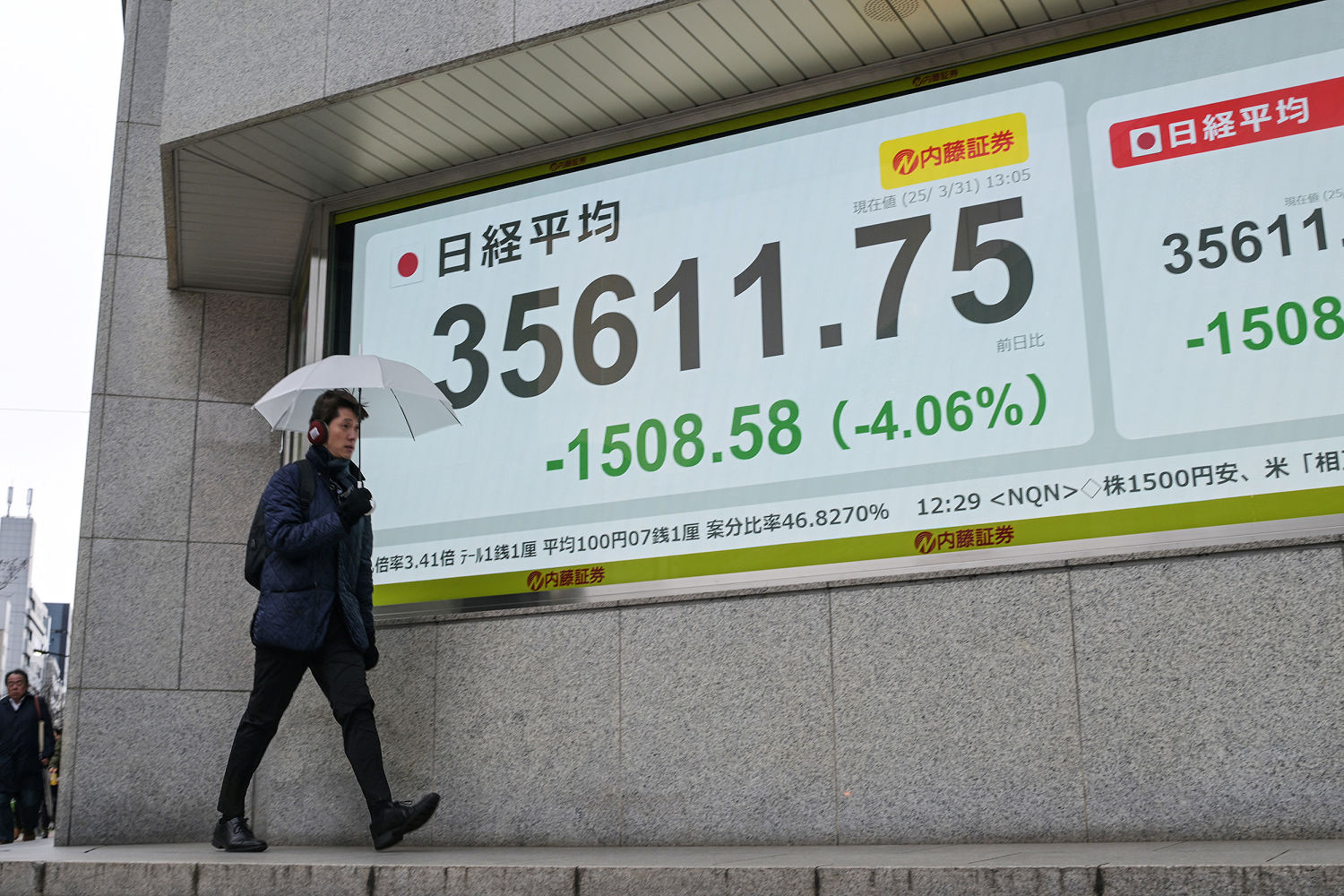Asian stocks tumble as U.S. tariffs fuel slowdown fears


Asian share markets tumbled on Monday, driven by concerns that the broad and steep U.S. tariffs to be announced this week could affect trade-reliant emerging economies, many of which have huge trade surpluses with the United States.
MSCI’s broadest index of Asia-Pacific shares outside Japan shed nearly 2%, while a gauge of Asian emerging market equities also plunged 2% to its weakest point since early March.
Most equities in emerging Asian countries fell to multi-month lows on the final trading day of the quarter, although major markets in Southeast Asia — Indonesia, Malaysia and Singapore — were closed for public holidays.
South Korea’s KOSPI dropped 3% to an eight-week low, with the East Asian nation being the most vulnerable in Asia to the U.S. auto tariffs.
Taiwan, one of the “Dirty 15” economies running high trade surpluses with the U.S., is exposed due to its export of high-tech products such as semiconductors. Its benchmark index plunged 4%, while its dollar hovered near a nine-year low.
“For Asia, whose dashing economic success of recent decades was largely built on exports, this (tariffs) pose severe challenges,” analysts at HSBC wrote.
Thailand’s benchmark hit a near five-year low, dragged down by Delta Electronics Thailand, which plunged as much as 5% on the day.
The electronics component maker has lost more than half of its value since scaling an all-time high last November, owing to concerns around core earnings and stretched valuations.
Most equities in Southeast Asia were headed for significant quarterly losses. Stocks in Indonesia and Malaysia shed around 8%, while those in Thailand plummeted more than 17% in the past three months.
Foreigners have pulled more than $4 billion from Southeast Asian stocks in the March quarter, marking the largest combined outflow since 2020.
Singapore remains a bright spot in the region as its Straits Times index rose more than 5% during the quarter, boosted by banks, despite its vulnerability to U.S. tariffs on pharmaceuticals.
Most Southeast Asian currencies crept higher against the dollar on Monday as a safety flight to U.S. Treasury bonds pressured the greenback.
The Thai baht>, the Philippine peso and the Singapore dollar saw slight gains against the U.S. dollar on Monday. All three currencies were on track to end the March quarter stronger against the greenback.
Though most regional currencies seem to be exiting the first quarter relatively unburned through all the tariff frenzy, analysts at MUFG expect the upcoming three months will not be the same.
“We expect an overall depreciation of Asian currencies against the dollar in Q2,” they wrote.
“However, with different degrees of exposures to tariffs, and country specific factors, some currency would weaken more than others.”
Markets in Indonesia, Singapore, Malaysia, and India were closed for public holidays.


